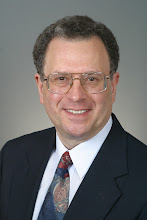Two 90-year-old women, Rose and Barb, had been friends all of their lives. When it was clear that Rose was dying, Barb visited her every day. One day Barb said, "Rose, we both loved playing softball all our lives, and we played all through High School. Please do me one favor: when you get to Heaven, somehow you must let me know if there's women's softball there."
Rose looked up at Barb from her deathbed and said, "Barb, you've been my best friend for many years. If it's at all possible, I'll do this favor for you." Shortly after that, Rose passed on.
At midnight a few nights later, Barb was awakened from a sound sleep by a blinding flash of white light and a voice calling out to her, "Barb, Barb."
"Who is it?" asked Barb, sitting up suddenly. "Who is it?"
"Barb, it's me, Rose."
"You're not Rose. Rose just died."
"I'm telling you, it's me, Rose," insisted the voice.
"Rose! Where are you?"
"In Heaven," replied Rose. "I have some really good news and a little bad news."
"Tell me the good news first," said Barb.
"The good news," Rose said, "is that there's Softball in Heaven. Better yet all of our old buddies who died before us are here, too. Better than that, we're all young again. Better still, it's always springtime, and it never rains or snows. And best of all, we can play softball all we want, and we never get tired."
"That's fantastic," said Barb. "It's beyond my wildest dreams! So what's the bad news?"
"You're pitching Tuesday." [Source]
So: Back to reality.
A recent study, published in Neurology, of individuals age 65 and older has found that those with cancer are less likely to develop Alzheimer's disease. And those with Alzheimer's are less likely to develop cancer. Specifically: "For people who had Alzheimer’s disease at the start of the study, the risk of future cancer hospitalization was reduced by 69 percent compared to those who did not have Alzheimer’s disease when the study started. For Caucasian people who had cancer when the study started, their risk of developing Alzheimer’s disease was reduced by 43 percent compared to people who did not have cancer at the start of the study."
Here's the full news release:
Alzheimer’s Disease May Protect Against Cancer and Vice Versa
Released: 12/16/2009 4:40 PM EST
Embargo expired: 12/23/2009 4:00 PM EST
Source: American Academy of Neurology (AAN)
Newswise — People who have Alzheimer’s disease may be less likely to develop cancer, and people who have cancer may be less likely to develop Alzheimer’s disease, according to a new study published in the December 23, 2009, online issue of Neurology®, the medical journal of the American Academy of Neurology.
“Discovering the links between these two conditions may help us better understand both diseases and open up avenues for possible treatments,” said study author Catherine M. Roe, PhD, of Washington University School of Medicine in St. Louis, MO, and a member of the American Academy of Neurology.
For the study, researchers looked at a group of 3,020 people age 65 and older who were enrolled in the Cardiovascular Health Study and followed them for an average of five years to see whether they developed dementia and an average of eight years to see whether they developed cancer. At the start of the study, 164 people (5.4 percent) already had Alzheimer’s disease and 522 people (17.3 percent) already had a cancer diagnosis.
During the study, 478 people developed dementia and 376 people developed invasive cancer. For people who had Alzheimer’s disease at the start of the study, the risk of future cancer hospitalization was reduced by 69 percent compared to those who did not have Alzheimer’s disease when the study started. For Caucasian people who had cancer when the study started, their risk of developing Alzheimer’s disease was reduced by 43 percent compared to people who did not have cancer at the start of the study, although that finding was not evident in minority groups.
The study was supported by the National Institutes of Health, the National Heart, Lung, and Blood Institute, the National Institute of Neurological Disorders and Stroke, the National Institute on Aging, the National Center for Research Resources, and the Washington University Alzheimer’s Disease Research Center.
The American Academy of Neurology, an association of more than 21,000 neurologists and neuroscience professionals, is dedicated to promoting the highest quality patient-centered neurologic care. A neurologist is a doctor with specialized training in diagnosing, treating and managing disorders of the brain and nervous system such as stroke, Alzheimer’s disease, epilepsy, Parkinson’s disease, and multiple sclerosis.

No comments:
Post a Comment